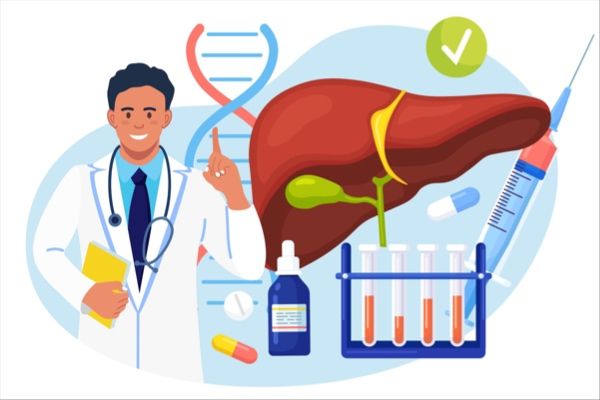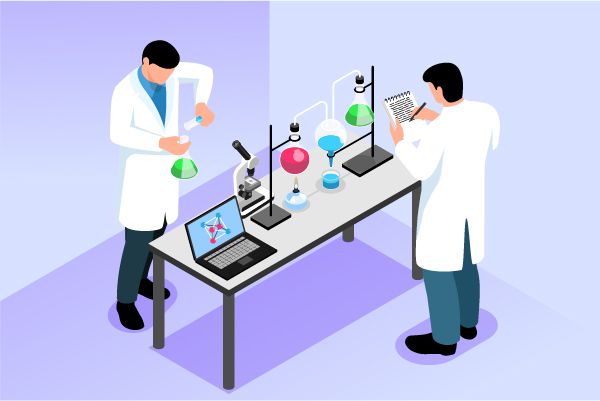Request Demo
Recent blog posts
Hot Spotlight
5 min read
Nature: Identification of Allosteric Modulators Targeting Opioid Receptors through DNA-Encoded Small Molecule Library Screening
7 August 2024
The paper discusses the identification of a novel negative allosteric modulator of the µ-opioid receptor (µOR) through screening with a DNA-encoded small molecule library.
Hot Spotlight
7 min read
Pfizer announces the advancement of the once-daily formulation development for the oral GLP-1 receptor agonist Danuglipron
7 August 2024
Danuglipron is an oral small molecule glucagon-like peptide-1 (GLP-1) receptor agonist. Pfizer plans to conduct dose-optimization studies in the second half of 2024.
Hot Spotlight
5 min read
Eli Lilly's $660 Million Collaboration and Notch Pathway Signal Inhibitors
7 August 2024
Eli Lilly currently holds the throne as the world's most valuable pharmaceutical company by market capitalization.
Hot Spotlight
5 min read
Neurocrine Biosciences: After 30 years, a breakthrough in the development of CRF1 antagonists is imminent
16 July 2024
If approved, crinecerfont will be the first new treatment option for CAH in 70 years and represents a novel therapeutic approach, offering a new treatment method for this rare and severe endocrine disorder.
Hot Spotlight
7 min read
Nuclear Medicine: New Trends in Antitumor Drugs
16 July 2024
Radioligand therapy (RLT), as a part of radiopharmaceuticals, delivers high-energy radiation directly to cancer cells by targeting their structural or biochemical mutations.
Hot Spotlight
10 min read
What are the prospects for the AOC therapy that boosted Avidity by 33%?
5 July 2024
Avidity Biosciences, a U.S. publicly traded company, announced the latest data from the Phase 1/2 clinical trial FORTITUDE that investigates AOC1020 for treating FSHD.
Hot Spotlight
8 min read
The Latest Review Provides Detailed Analysis of CAR-NK and CAR-T Cell Therapies
26 June 2024
The improved version of CAR-T therapy, CAR-NK therapy, has recently attracted considerable attention from the academic and pharmaceutical sectors due to its increased tumor-specific targeting and cytotoxicity, cost-effectiveness and easier availability of NK cells, shorter large-scale production cycles, and enhanced efficacy in treating solid tumors.
Hot Spotlight
6 min read
Chugai collaborates with Helsinn to promote the antiemetic drug AKYNZEO
25 June 2024
On June 12, Helsinn Healthcare announced the renewal of its distribution and licensing agreement with Chugai Pharma Europe to promote AKYNZEO® (a combination drug containing netupitant and palonosetron) in the UK and Ireland.
Hot Spotlight
5 min read
Reflections on the FDA Hold of Medilink Therapeutics' HER3 ADC YL202/BNT326
21 June 2024
What is the structure of YL202/BNT326, and why is it exhibiting such high toxicity?
Hot Spotlight
5 min read
Eli Lilly: GLP-1R/GCGR/GIPR Triagonist Reduces Liver Fat Content by 86%
20 June 2024
The study indicated that Retatrutide (LY3437943), a GLP-1R-related triple receptor agonist currently under clinical development, demonstrated significant efficacy and favorable safety in the treatment of metabolic dysfunction-associated steatotic liver disease (MASLD).
Hot Spotlight
18 min read
Research Progress on GPCR Antibody Drugs
18 June 2024
Aimovig™ (erenumab) is an injectable human monoclonal antibody (mAb) co-developed and co-marketed by Novartis and Amgen, indicated for the preventive treatment of migraines in adults.
Hot Spotlight
9 min read
Science: AlphaFold2 Structural Models Guide Drug Discovery
18 June 2024
The researchers conducted a prospective docking of extensive compound libraries against the unoptimized AlphaFold2 (AF2) models of the σ2 receptor and the 5-HT2A receptor.











